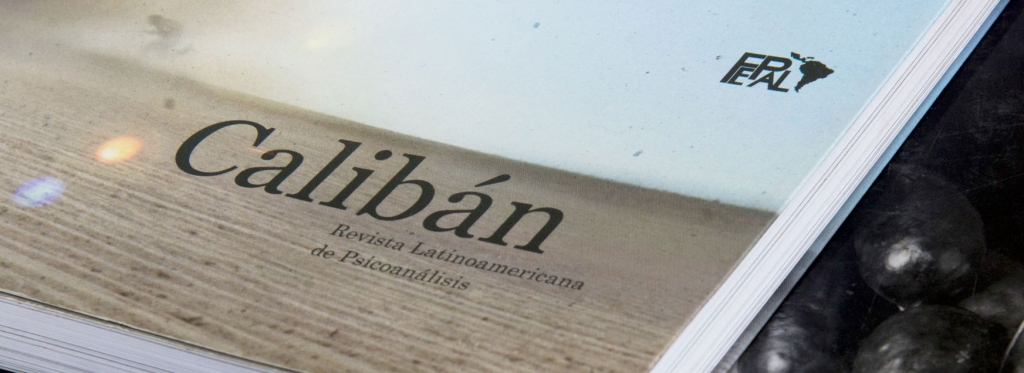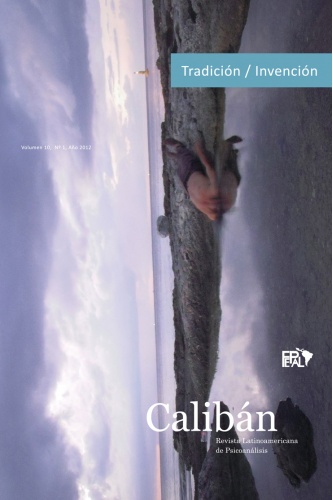Calibán: psychoanalysis in a Latin American key

Calibán, RLP is the official journal of Fepal, Latin American Psychoanalytical Federation, an organization formed by 13 Brazilian and 22 Spanish speaking psychoanalytical societies – 35 in total.
Calibán, RLP appeared as a vehicle for the dissemination of psychoanalysis’ ideas and practices in Latin America, respecting and representing the region’s theoretical and clinical diversity. The journal’s project and editorial policy are coherent with a scientific proposal that is both creative and expressive of the Latin American reality.
Calibán intends to stimulate reflection and debate regarding issues pertinent to psychoanalysis within contemporary’s scientific, cultural, social, and political context. Moreover, it is a publication interested in the fruitful exchange with the psychoanalysis produced in other latitudes and with other fields of knowledge. On its pages, Calibán intends to dialogue with the humanities and with diverse lines of thinking in order to encourage wide debate and include psychoanalysis in the contemporary subject’s problematizations. Based on Freud’s idea that artists are one step forward, the latter are also invited to question our journal’s themes, including via each issue’s graphic design.
The journal’s name is an anagram of canibal (cannibal) and was inspired by Shakespeare’s character in The Tempest. He is a savage who is incapable of correctly speaking the “official” culture’s language, precisely Europe’s view of the new world’s native peoples until not long ago.

The choice of this name for Fepal’s journal generates a fitting irony, since Calibán still represents the colonized but, this time, with our own voice, distant from a mere repetition of the ideas coming from Europe. It takes the anthropophagic metaphor about “devouring” what comes from the colonizing culture and adding to
Calibán, RLP, is published in two versions – Spanish and Portuguese – and we already offer a few issues in English online.